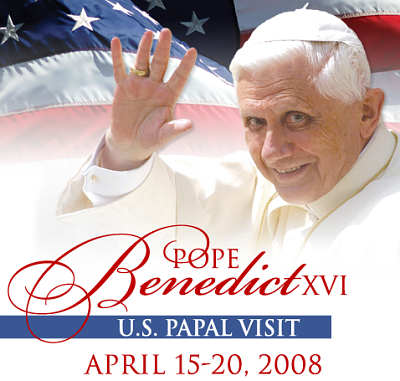
I dag – kl 12.00 lokal tid – reiser pave Benedikt til USA. Det er store forventninger til besøket, og det er allerede skrevet hundrevis av sider om det. John Allen skriver f.eks. slik om Ratzingers kjennskap til og vurderinger av USA:
Probably the top note of Benedict’s thought is appreciation that the United States remains a deeply religious society. Despite the inroads of secularism, it still has a lively appreciation for the public contribution of religion. … Ratzinger also wrote in 2004 that democracy in the United States is based on moral and religious values derived from Christianity.
«No one prescribed or defined these convictions, but everyone assumed them as the obvious spiritual foundation,» he wrote. «The recognition of this basic religious and moral orientation, which went beyond the single denominations and defined the society from within, reinforced the corpus of the law. It defined the limits on individual freedoms from within, thereby creating the conditions for a shared, common freedom.»
The pope believes this basic consensus is fragile today, but intact. «One could say, at least in my opinion, that in the United States there is still a Christian civil religion, although it is besieged and its contents have become uncertain,» he wrote.
In Benedict’s mind, the appreciation for religion in America stands in sharp contrast with contemporary Europe. «In the United States, secularization is proceeding at an accelerated pace, and the confluence of many different cultures disrupts the basic Christian consensus. However, there is a much clearer and more implicit sense in America than in Europe that the religious and moral foundation bequeathed by Christianity is greater than that of any single denomination. Europe, unlike America, is on a collision course with its own history. Often it voices an almost visceral denial of any possible public dimension for Christian values.»
According to the pope, why has the United States been able to hold onto its religious dynamism while Europe hasn’t? In sum, he believes it’s due to their differing histories of church/state relations.
